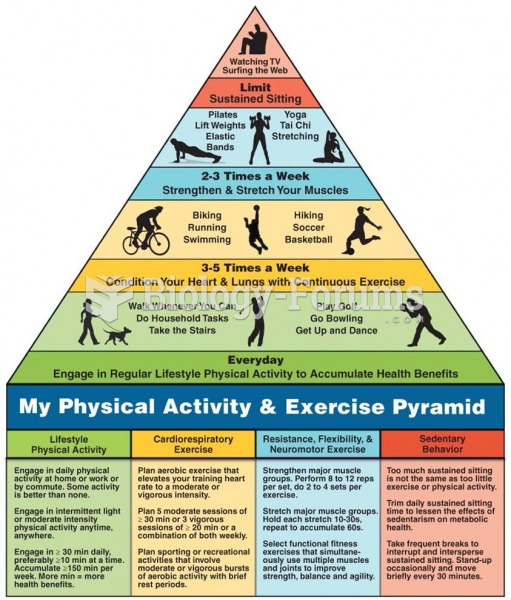|
|
|
The average office desk has 400 times more bacteria on it than a toilet.
The most dangerous mercury compound, dimethyl mercury, is so toxic that even a few microliters spilled on the skin can cause death. Mercury has been shown to accumulate in higher amounts in the following types of fish than other types: swordfish, shark, mackerel, tilefish, crab, and tuna.
Most childhood vaccines are 90–99% effective in preventing disease. Side effects are rarely serious.
Many people have small pouches in their colons that bulge outward through weak spots. Each pouch is called a diverticulum. About 10% of Americans older than age 40 years have diverticulosis, which, when the pouches become infected or inflamed, is called diverticulitis. The main cause of diverticular disease is a low-fiber diet.
The effects of organophosphate poisoning are referred to by using the abbreviations “SLUD” or “SLUDGE,” It stands for: salivation, lacrimation, urination, defecation, GI upset, and emesis.
 Diabetes mellitus. The metabolic disease diabetes mellitus, with symptoms of polydipsia, polyuria, a
Diabetes mellitus. The metabolic disease diabetes mellitus, with symptoms of polydipsia, polyuria, a
 The medical assisting profession offers many settings in which to pursue your career. Good communica
The medical assisting profession offers many settings in which to pursue your career. Good communica





